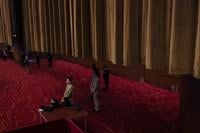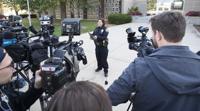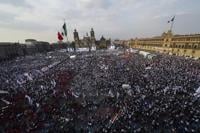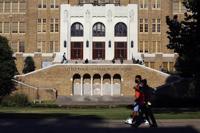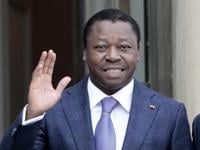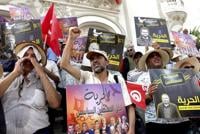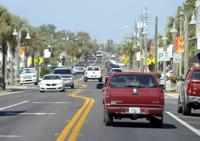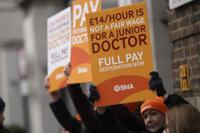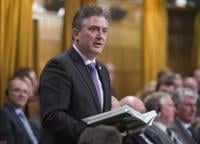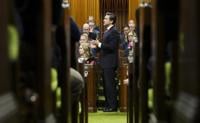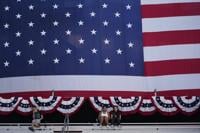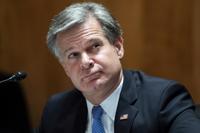HONG KONG (AP) — China's senior official overseeing Hong Kong's affairs said Saturday that protests are not the only way for people to express their views, weeks after the city’s strict protest rules sparked controversy while signaling Beijing’s vision for the financial hub.
Xia Baolong, director of the Hong Kong and Macao Affairs Office, said the anti-government movement sparked by an extradition bill in 2019 is a scar that will not fade away and he warned against a repeat of such chaos.
Xia's remarks at a ceremony on China's ������ϲʹ������� Security Education Day indicated Beijing's views on the city, which is promoting its return to normalcy following strict pandemic-related restrictions and political turmoil over the past three years.
Hong Kong, a former British colony, returned to Chinese rule in 1997 and was promised it could keep its Western-style civil liberties intact for 50 years after the handover. But after the enactment of a Beijing-imposed national security law following the 2019 protests, many activists were jailed or silenced amid a crackdown on the city’s pro-democracy movement. Major protests were also rare under the strict COVID-19 rules.
In late March, Hong Kong saw its first authorized protest against a government policy since the lifting of major pandemic restrictions under unprecedentedly strict rules, with demonstrators made to wear numbered badges around their necks. That sparked a debate over the erosion of freedom of assembly.
“Demonstrations are not the only way to express one’s interests and demands,” Xia said Saturday, noting that there is no contradiction between safeguarding national security and expressing one's views.
Past experiences have shown that causes centered on environmental protection and livelihood issues can be easily hijacked, he said.
“People's good will can be easily exploited and manipulated by others with ulterior motives," he said. “Demands on livelihood issues can even be distorted into political issues and that eventually trigger social confrontation.”
He said a confrontational society has no future, calling on Hong Kong to build a climate for rational communication.
“I hope Hong Kong can host exhibitions, develop innovation and technology, strive for economic development, have horse races, dances, stock activities, and earn some money every day,” he said.
Xia also described the 2019 protests as Hong Kong's version of a “color revolution” and said the city cannot allow its district councils to be controlled by anti-China and “destabilizing” forces.
The city's district councilors largely handle municipal matters such as organizing construction projects and ensuring that public facilities are in order. But the pro-democracy camp's landslide victory in the 2019 election took on symbolic importance at the height of the social movement more than three years ago.
Local media earlier quoted sources reporting that authorities planned to conduct an overhaul of electoral rules for the district council poll, which is expected to take place later this year.
In 2021, the city amended its electoral laws for its legislature, drastically reducing the public’s ability to vote and increasing the number of pro-Beijing lawmakers making decisions for the city.
Beijing's crackdown on Hong Kong has also had an impact on Taiwan's politics. While it is still unclear how the Hong Kong situation will affect the self-ruled island democracy's presidential and legislative elections next year, the 2019 protests in Hong Kong were seen as a major reason behind Taiwanese President Tsai Ing-wen's victory in 2020.


